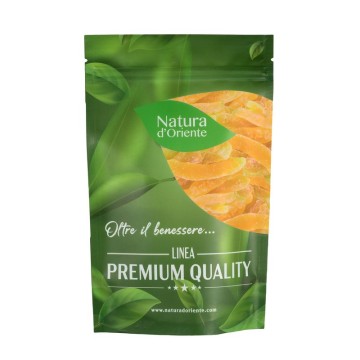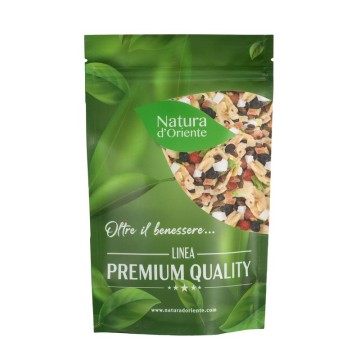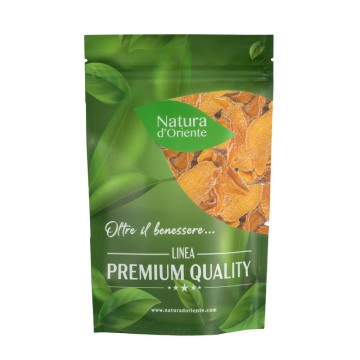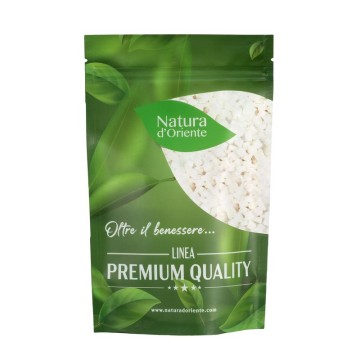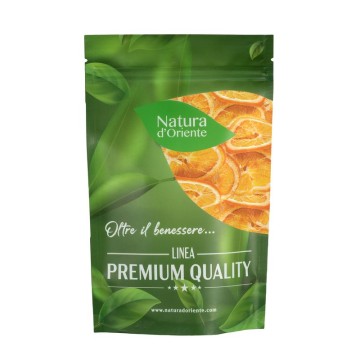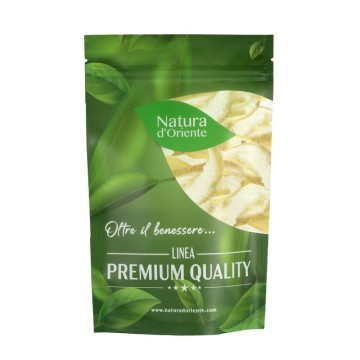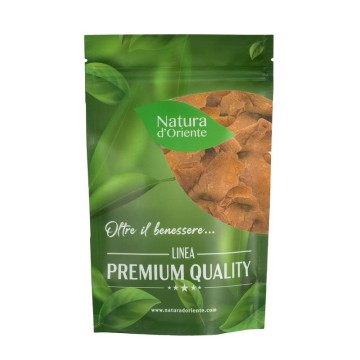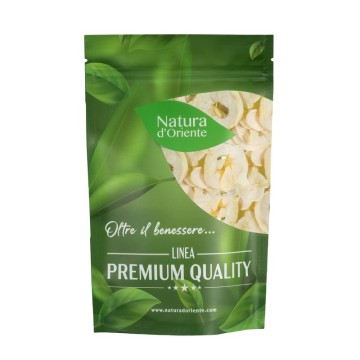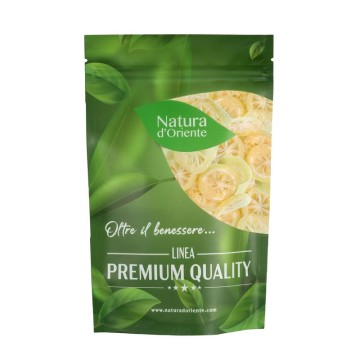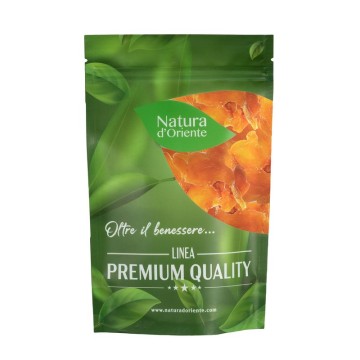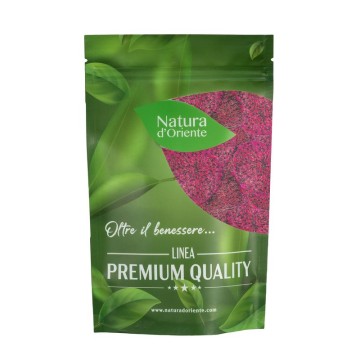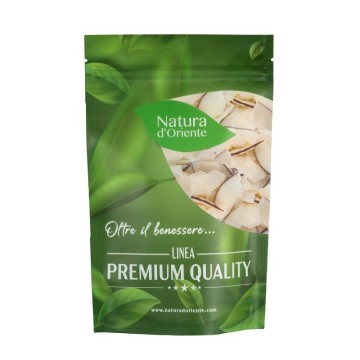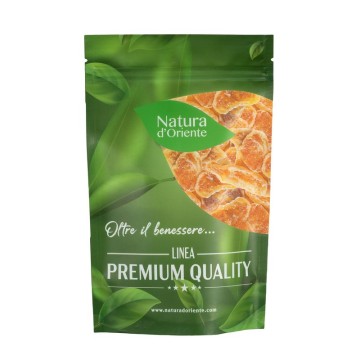Dehydrated mango
An exotic fruit much loved for its delicious taste, it also has many healthy characteristics, being rich in vitamins and mineral salts. Even in the dried version, the mango reserves beneficial and energizing nutrients, and an appetizing sweet taste for breakfast, snacks or desserts.
Dried mango: properties and benefits
In addition to being one of the most sought-after exotic tropical fruits due to its exquisite pulp, the mango is considered a fruit rich in nutrients beneficial to well-being of our body. The nutritional components of the mango give the fruit beneficial properties, deriving from the wealth of vitamins, mineral salts, antioxidants - substances that our body needs for protection, development and correct functioning.
Even in the dehydrated mango version, perfect as a snack, this fruit retains nutrients and calories. It is a fruit rich in sugars and vitamins, characteristics that make it an ideal fruit for sportsmen and students looking for an energizing food. The substance most represented in the fruit is potassium, of which it is an excellent source. Potassium is involved in many physiological processes of our body such as muscle contraction, the defense of a correct hydro-saline balance and the regulation of blood pressure.
One of the best known benefits of dehydrated mango is related to vitamin A. This vitamin is vital for maintaining correct vision, glowing skin and a strong immune system. Vitamin A contained in dried mangoes also helps improve skin conditions such as acne, and thanks to beta-carotene it can prevent the effects of sun exposure and skin aging. Mango is an excellent antioxidant also thanks to the vitamin C content – albeit reduced with dehydration. A vitamin that performs a good action on the immune system, is involved in the synthesis of collagen, and is an important vitamin for the correct assimilation of iron. The contribution of Vitamin E of the mango makes it a fruit containing the most important antioxidant vitamin for our body. In terms of soluble fiber, dehydrated mango contains good amounts of it, which help digestion and purify the digestive system. These fibers are also helpful for reducing cholesterol and in diets, for weight loss. Add to that the fact that mango contains enzymes called amylases, which help in the easy absorption of food. This fruit supports the correct digestive function, also through the breakdown of complex carbohydrates into simple sugars.
The mango, therefore, is known for its beneficial action on carbohydrate metabolism. It helps the regularity of intestinal transit, as well as the liver. As with other fruits, mango contains compounds that act as antioxidants - substances that protect our cells from damage caused by free radicals - these are the cause of our cellular aging and, according to some studies, could also be associated with various degenerative diseases.
One of these antioxidants is called mangiferin, which has been the subject of numerous studies, and of which mango is the most abundant source. An element with various antioxidant properties, studied for its ability to prevent the production of certain free radicals in our cells, and for its possible therapeutic properties. 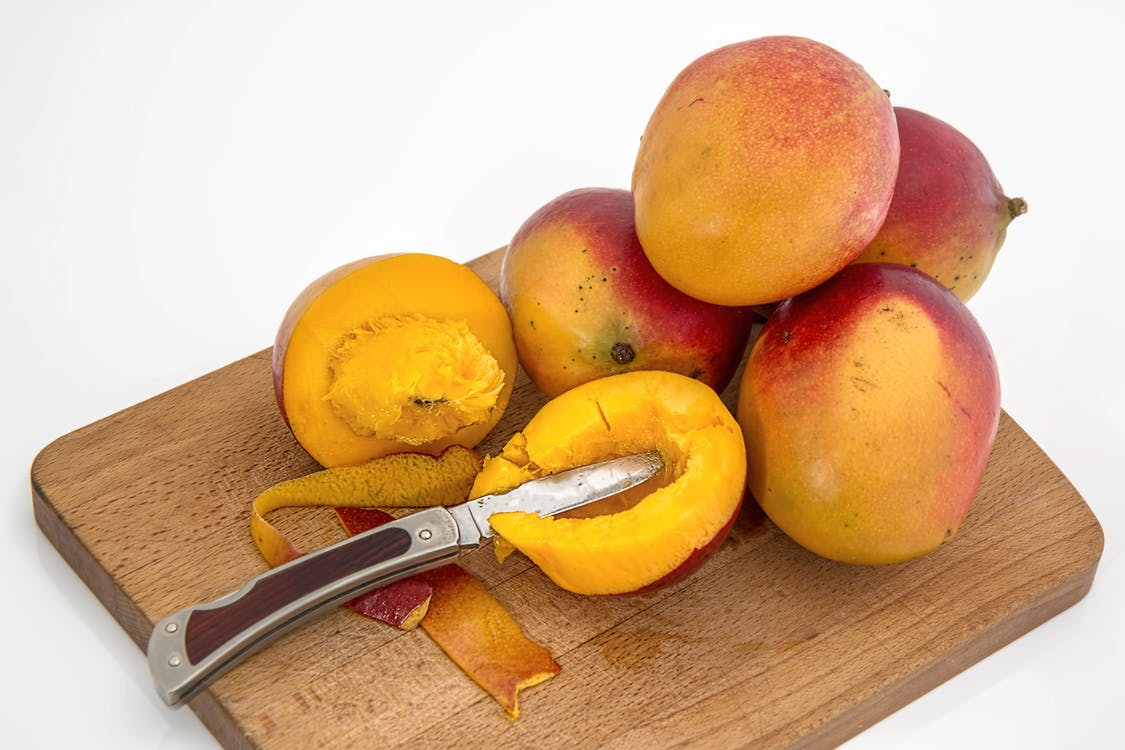 Another important substance for those who choose dehydrated or not dehydrated mango is the presence of lupeol, a small molecule that has been studied for decades for its inflammation-fighting properties.</p >
Another important substance for those who choose dehydrated or not dehydrated mango is the presence of lupeol, a small molecule that has been studied for decades for its inflammation-fighting properties.</p >
Finally, dehydrated mango contains good doses of folate (vitamin B9) which are transformed into folic acid, considered a crucial pre-natal food supplement. It is an essential element for the proper development of the baby's brain and spinal cord. Also for female well-being, this fruit contains calcium and iron, essential for bone health, especially during pregnancy and after menopause. Iron helps prevent fatigue, a condition women can be prone to during and after their menstrual cycle.
Mango also has a good reputation as a “tonic”. This comes from its high levels of B vitamins. These vItamines are commonly found in popular multivitamin supplements, known to boost alertness, fight stress, and improve stamina throughout the day.
The excellent content of trace elements such as manganese and copper, in dehydrated mango, ensure various benefits. Manganese is a mineral needed in a wide variety of bodily functions such as tissue and bone formation, blood clotting, and fat and carbohydrate metabolism. Copper is necessary for the formation of red blood cells, the well-being of the immune system.
Another beneficial substance contained in mango is magnesium, a mineral that has essential properties for the well-being of the nervous system, for the well-being of the bones , and for fat metabolism.
Origins and History of cultivation
This exotic delicious fruit indeed has its origins in India and grows commonly in all tropical areas. It represents one of the best known and most palatable tropical fruits, which has been linked to Hindu culture for centuries. The mango tree appears in many Indian legends as a sacred tree of the Hindus. Its leaves were used for garlands intended to embellish temples, decorate banquets for festivals or weddings – even in the Philippines.
The mango spread to East Asia in the 4th century BC, and to Africa in the 10th century via Arab merchants. It arrived in South America in the early seventeenth century, through the Portuguese. The meaning of the term "mango" derives from the Indian Tamil phrase maangai, which in Portugal became "manga" - a term that is mentioned in an Italian text in the 16th century.
Today the mango is cultivated in many tropical and even subtropical countries such as Spain (Andalusia) or Sicily; it is considered a real delicacy both fresh and dehydrated for conservation. The fruit of the plant called Mangifera indica in Latin is now available in all markets and in all seasons of the year – especially in the dried mango version.
Plant and Fruit
The mango fruit comes from the Mangifera Indica plant, an evergreen plant, with branches, resinous bark and rough red-colored wood. The leaves of the plant are pointed and shiny, the flowers bloom pinkish-white or yellowish, but not all of them bear the well-known mango fruit. Indeed, they are quite few compared to the flowers, and as a rule the fruits require from three to six months to ripen, depending on the variety.
The fruits are generally reddish-yellow in color and the size of a single fruit can be considerable and weigh more than two kilos.
Nutritional values of dehydrated mango
The mango contains several useful micronutrients for our well-being. It is a fruit with little fat but rich in fiber (about 2%) and with an excellent availability of minerals such as potassium (about 279 mg per 100 g), magnesium (about 20 mg per 100 g), copper (about 0.3 mg per 100 g) and manganese (about 10 mg per 100 g).
Its vitamin content is also high, including vitamin B6, vitamin E (about 4 mg / 100 g) and beta-carotene (786 µg) – precursor of vitamin A. The doses of Vitamin K are also good (13.2 µg). Although with some loss due to dehydration, vitamin C may be present (about 42.3 mg per 100 g).
Among the folates, there is vitamin B9 (folate - folic acid approximately 68 µg), essential for the synthesis of nucleic acids and some amino acids. There are also other B vitamins such as B1 (about 0.06 mg thiamine), B3 (about 2 mg niacin), B6 (about 0.3 mg pyridoxine).
Furthermore, as we have seen, dried mango contains various antioxidants, substances particularly studied for their properties to contrast cellular ageing. Dehydration enhances the properties of the mango, and makes it equally beneficial in its effects.
How to consume dehydrated mango in the kitchen or as a snack
In the kitchen, mango is used to flavor yoghurt, smoothies, fruit salads or cereal mixes but also in salads for those who love sweet and sour taste. In short, like many dehydrated fruits, it can be optimal for all sweet preparations and garnishes, even for cakes, cupcakes, ice cream tops.
Remember that dried mango is a fundamental ingredient in Thai cuisine, also used to flavorking main courses. The sliced dehydrated mango versions are often used as snacks, for a dietary snack rich in mineral salts, energetic thanks to the sugars of the fruit. They can also be used to create energy bars.
Dehydrated mango: side effects and contraindications
There are no particular contraindications to taking mango in the diet, but a possible intolerance to the food must be considered. As with many dried fruit, the sugar content in dehydrated mango pieces is high, which is why excessive intake should not be recommended for those suffering from diabetes. Furthermore, being rich in fibre, in large doses it could cause an excessively laxative action.

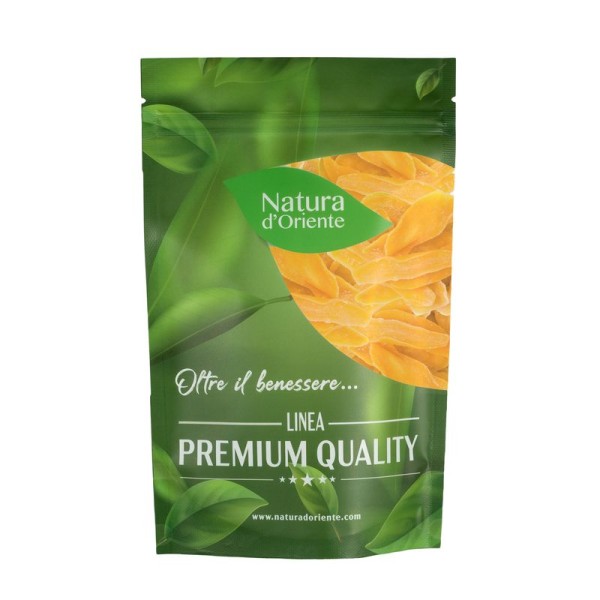







 No reward points for this product.
No reward points for this product.
 Another important substance for those who choose dehydrated or not dehydrated mango is the presence of lupeol, a small molecule that has been studied for decades for its inflammation-fighting properties.</p >
Another important substance for those who choose dehydrated or not dehydrated mango is the presence of lupeol, a small molecule that has been studied for decades for its inflammation-fighting properties.</p >